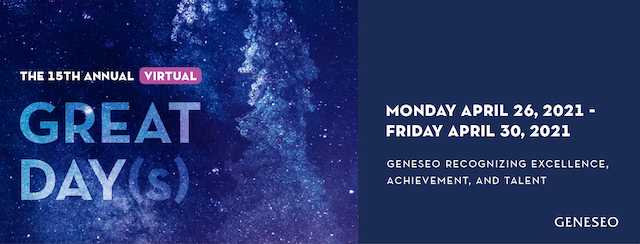
Submission Type
Poster
Start Date
April 2021
Abstract
Applications in Neuroscience (NEUR215) offers an opportunity for community outreach within the Neuroscience major. Students enrolled in NEUR215 create neuroscience-based activities designed to foster an excitement for science and to promote higher education in elementary school students recruited through the R-Kids after-school enrichment program. Four one-hour live sessions were held via Zoom with 2-5 R-Kids participants attending each session. Due to the COVID-19 pandemic, all lessons were transitioned virtually during the fall 2020 semester, and effective teaching strategies in a virtual environment were explored. The results of this investigation showed that online learning can be both fun and effective. Inviting student participation, providing hands-on activities to follow the lessons, and having pre-recorded lecture material were strategies that seemed most effective at fostering a virtual learning environment.
Recommended Citation
Verrelli, Lucia; Cotrupi, Natasha; Hoyt, Julia; Quiroz, Daniella; and Bazzett, Terence, "381— Virtual Community Outreach for Elementary School Children in R-Kids After-school Program: A Novel Way to Teach Students about Neuroscience" (2021). GREAT Day Posters. 100.
https://knightscholar.geneseo.edu/great-day-symposium/great-day-2021/posters-2021/100
Included in
381— Virtual Community Outreach for Elementary School Children in R-Kids After-school Program: A Novel Way to Teach Students about Neuroscience
Applications in Neuroscience (NEUR215) offers an opportunity for community outreach within the Neuroscience major. Students enrolled in NEUR215 create neuroscience-based activities designed to foster an excitement for science and to promote higher education in elementary school students recruited through the R-Kids after-school enrichment program. Four one-hour live sessions were held via Zoom with 2-5 R-Kids participants attending each session. Due to the COVID-19 pandemic, all lessons were transitioned virtually during the fall 2020 semester, and effective teaching strategies in a virtual environment were explored. The results of this investigation showed that online learning can be both fun and effective. Inviting student participation, providing hands-on activities to follow the lessons, and having pre-recorded lecture material were strategies that seemed most effective at fostering a virtual learning environment.


Comments
Sponsored by Terence Bazzett